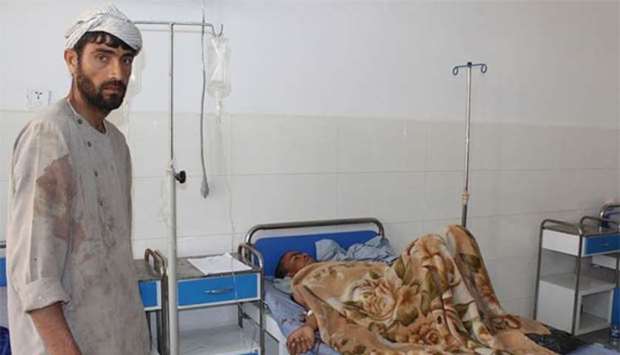Villagers in the northern Afghan province of Kunduz said they had buried dozens of victims of an air strike on a Taliban controlled district, in an incident the United Nations described as "disturbing."
The event underlined the risks of greater use of air power under a new US strategy announced last year to try to force the militant group to the negotiating table.Sayed Jaan, a resident of the district of Dasht-i Archi, said he participated in two mass funerals of almost 40 people, adding that others followed Monday's bombing by the Afghan Air Force (AAF).
He said the helicopter attack happened during a religious ceremony, called Dastaar Bandi, to mark young men completing the memorisation of the Holy Qur'an.
"There were two mass graves to bury the victims of the bombing and I took part in both burials. In one grave, 16, and in another, 21. Many were young children," Sayed Jaan said on Tuesday.
"There were other burials and people were digging graves."
The United Nations Assistance Mission in Afghanistan (UNAMA) said in a tweet its investigators were in the area looking into "disturbing reports of serious harm" to civilians.
A senior official of Afghanistan's defence ministry said the air attack happened during a meeting of militants, and killed at least 35 Taliban and wounded many more, but he denied reports that civilians were harmed. Two senior Taliban commanders were among those killed, the official said.
Kunduz city was seized briefly by the Taliban in 2015 and was overrun by the militants for a second time the following year but has since been considered relatively secure. However the Taliban controls much of the surrounding province, with government ground forces unable to reach many areas.
A video posted online by the Taliban showed at least four bodies of children, wrapped in white shrouds. Other images circulated of children and adults being treated in hospital for injuries, but they could not be verified.
Building up the fledgling AAF has been a major priority for the Nato-led Resolute Support training and advisory mission.
On Monday, the Taliban said the strike killed 150 religious scholars and civilians and denied the presence of any of its forces.
Last year, more than 10,000 civilians died or suffered injuries in Afghanistan over the war between its Western-backed government and militant groups, down 9% from the previous year, a UNAMA report showed in February.

